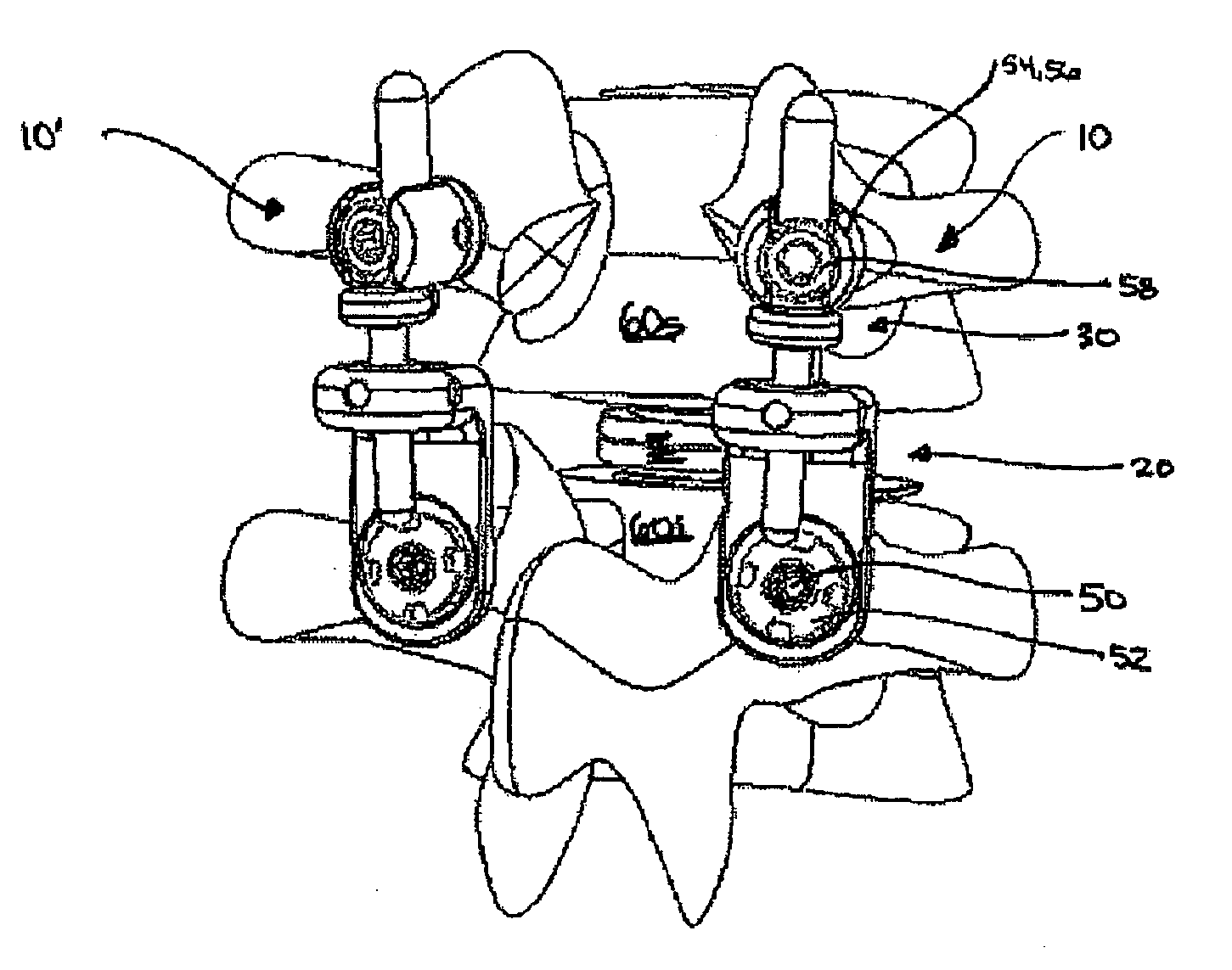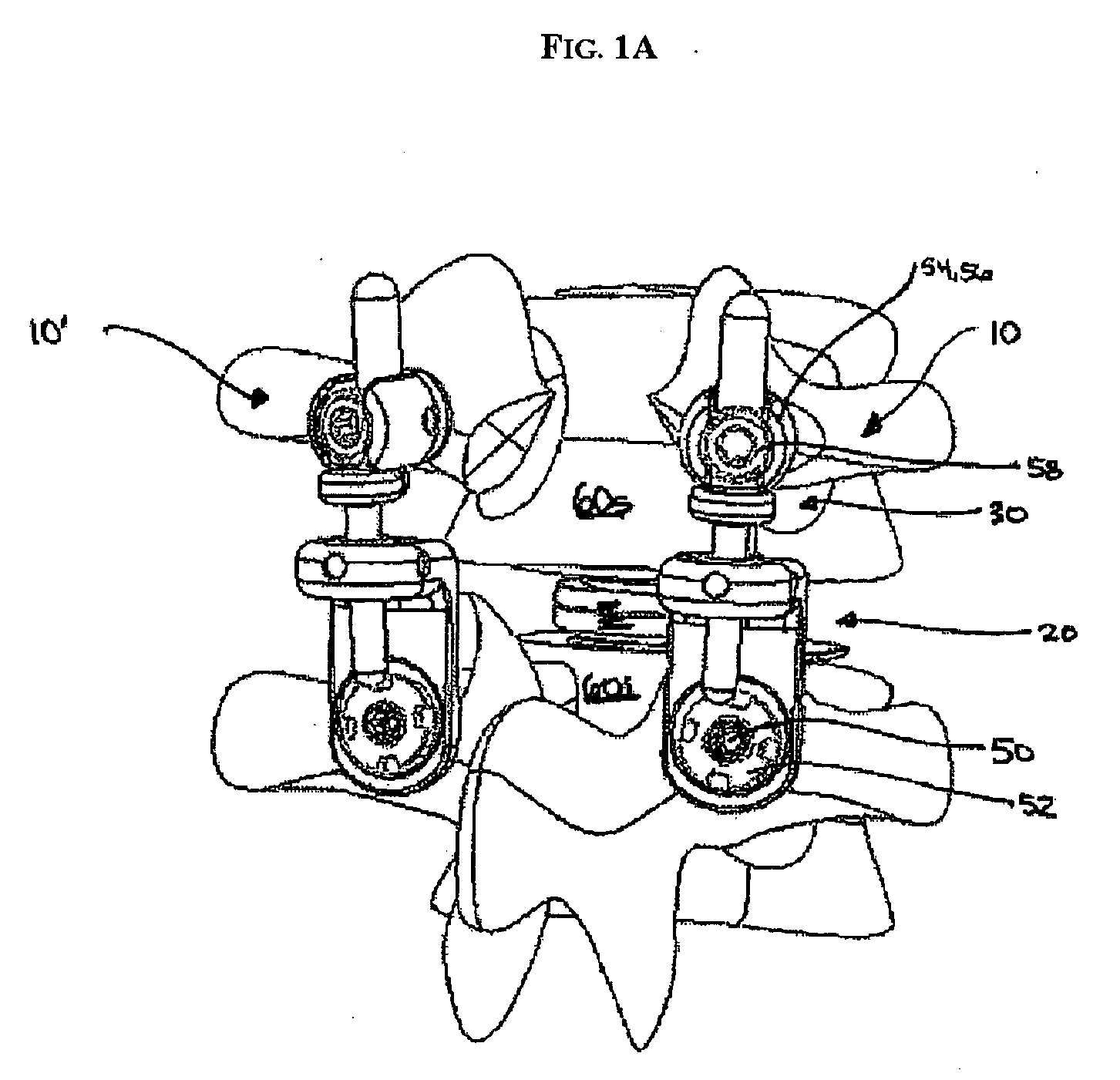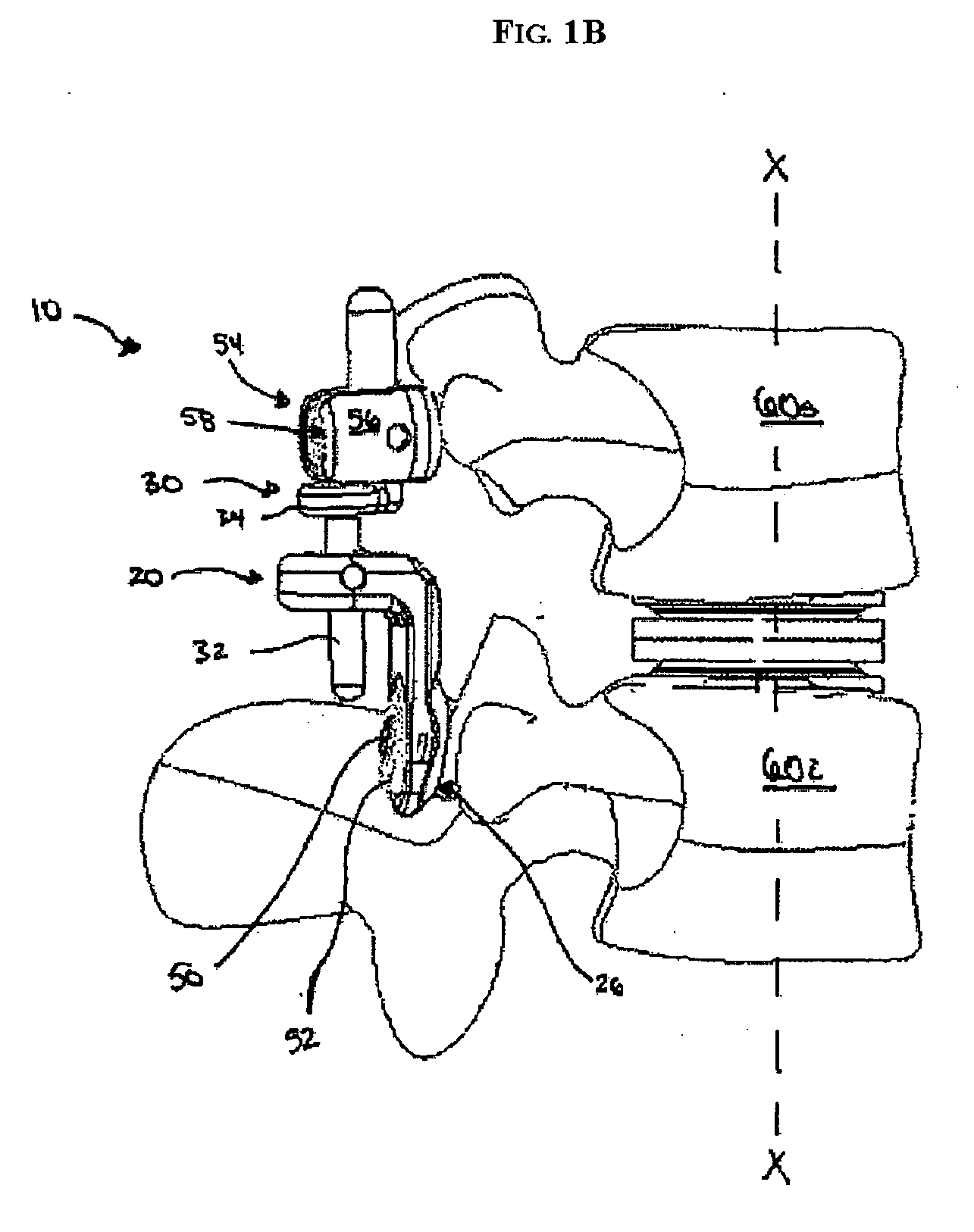Artificial facet joint
a facet joint and artificial technology, applied in the field of spinal instrumentation, can solve the problems of affecting the normal forward curvature of the spine, pain, neurological dysfunction, and limited use of capping techniques, and achieve the effect of facilitating the control of the movement of adjacent vertebra
- Summary
- Abstract
- Description
- Claims
- Application Information
AI Technical Summary
Benefits of technology
Problems solved by technology
Method used
Image
Examples
Embodiment Construction
[0032] The present invention provides various methods and devices for replacing damaged, injured, diseased, or otherwise unhealthy posterior elements, such as the facet joints, the lamina, the posterior ligaments, and / or other features of a patient's spinal column. In one exemplary embodiment, the methods and devices are effective to mimic the natural function of the spine by allowing flexion, extension, and lateral bending of the spine, while substantially restricting posterior-anterior shear and rotation of the spine. A person skilled in the art will appreciate that, while the methods and devices are especially configured for use in restoring and / or replacing the facet joints and optionally other posterior elements of a patient's spine, the methods and devices can be used for a variety of other purposes in a variety of other surgical procedures.
[0033]FIGS. 1A-4C illustrate one exemplary embodiment of a posterior stabilizing implant. While two implants 10, 10′ are shown coupled to...
PUM
 Login to View More
Login to View More Abstract
Description
Claims
Application Information
 Login to View More
Login to View More - R&D
- Intellectual Property
- Life Sciences
- Materials
- Tech Scout
- Unparalleled Data Quality
- Higher Quality Content
- 60% Fewer Hallucinations
Browse by: Latest US Patents, China's latest patents, Technical Efficacy Thesaurus, Application Domain, Technology Topic, Popular Technical Reports.
© 2025 PatSnap. All rights reserved.Legal|Privacy policy|Modern Slavery Act Transparency Statement|Sitemap|About US| Contact US: help@patsnap.com



